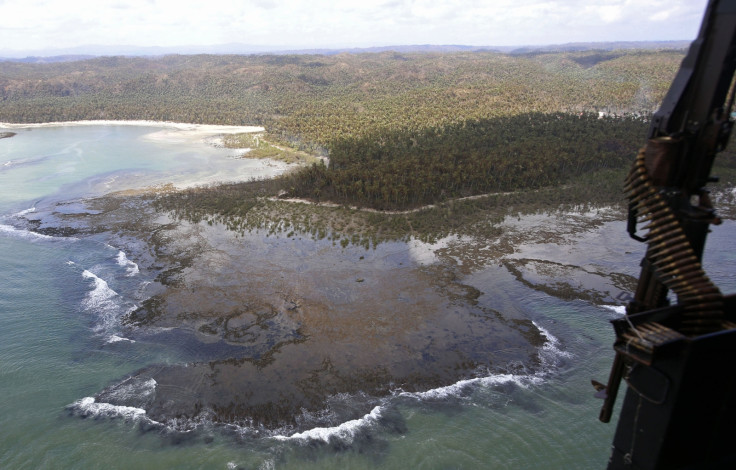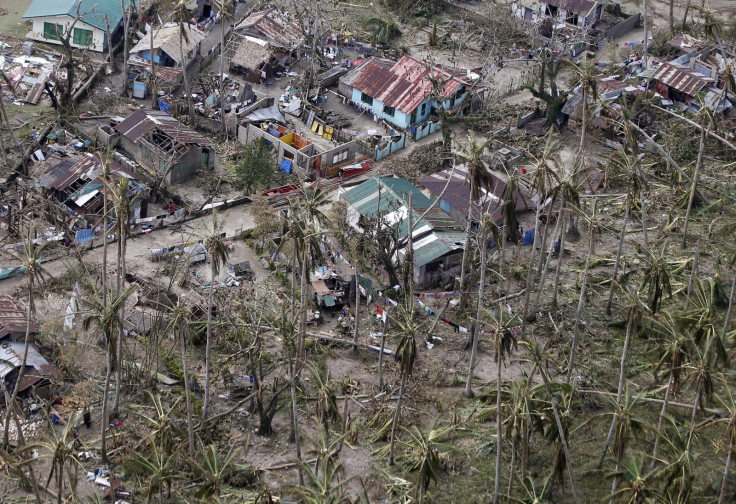Typhoon Hagupit: It's time winds of change blew away climate dystopia

As Typhoon Hagupit was battering the Philippines, one of the biggest peacetime evacuations in history was launched to prevent a repeat of the massive loss of life caused by Super Typhoon Haiyan that hit the same area just over a year ago. Despite this, there have been at least 21 fatalities and that number is likely to grow, as communication is re-established with the hard-hit island of Samar.
The consequences of Hagupit (locally known as Ruby) are emblematic of the battle we are waging against nature. It is another marker on our continuing human story. The urgent question for all of us now is how we write the next chapter.
It is indisputable that the effects of global warming are caused by human activity and that global warming is increasing the frequency and severity of disasters such as the Typhoon Hagupit.
Past and current responsibility for the emissions causing the current chaos lie with developed countries and just 90 big polluters including coal, oil and gas companies responsible for 67% of emissions.
As every kid knows, if you break something you need to fix it.
However, we don't just need reparations for past activities, we also need to stop the behaviour that is continuing to cause the problem. We need to wean ourselves from our addiction to fossil fuels and quickly transition to a renewable energy economy.
This is what nature demands of us if we are to avoid the type of dystopia a business as usual approach will deliver. We cannot negotiate with nature, but we can negotiate on how we change direction, fund the transition to a new economy and secure a safe future for humanity.
The United Nations Framework Convention for Climate Change, recognising this historical responsibility, established the Green Climate Fund to channel money from developed countries to developing ones to assist with adaptation to the effects of climate change as well as shift towards low emission development pathways.
However, a recently held first pledging conference raised only $9.7 billion, which does not go anywhere near covering the increasing costs of the effects of global warming.
According to the World Bank, in 2013 the world had lost more than 2.5 million people and around $4 trillion to natural disasters. In the 1980s the losses were around $50 billion each year, by the first decade of this century that figure had risen to $200 billion each year. About 75% of this was attributed to extreme weather. The cost of the super typhoon Haiyan that hit the Philippines in 2013 was $5.8 billion along with the loss of 7,000 lives to whom we cannot attach a monetary figure.
At the same time fossil fuel companies, far from being held accountable for reparations, continue to harvest private profits by spewing more carbon into the atmosphere. The top 10 big polluters reaped $140 billion in net income in 2012 and this wasn't even considered a 'good' year. Chevron's part of this pie was $26.2 billion for a company which also contributed 3.52% of total global emissions between 1751 and 2010.
People in the business world and elsewhere have begun talking about this climate chaos as 'the new normal', as though through manipulating markets and incorporating human misery into balance sheets we can somehow continue with business as usual.
This business as usual approach benefits a small number of elites at the increasing cost of the masses. But, it is open to us to choose another 'new normal', one in which we implement the euthanasia plan required for the fossil fuel industry. One in which we use the profits disgorged by these companies to fund the transition to the new economy and the 'new normal' that promotes our human common interest and serves climate justice.

We only have a small window of opportunity to protect ourselves from the type of dystopia we are creating.
We can't get off fossil fuels tomorrow, but get off them we must. Most of us are connected with the fossil fuel industry in some way, whether through driving a car, drawing a wage from an oil company, or risking your life in a coalmine. We have already begun to wean ourselves off the fossil fuel drug that we have come to rely upon.
Whole countries like Germany have started this transition with 31% of their energy now coming from renewables. Boulder, Colorado in the US, impatient for governments to act, has bought back its grids and accelerated the transition to renewables.
Shareholders in fossil fuel companies are questioning the logic of spending capital exploring for unconventional oil that nature will not allow us to burn without cataclysmic consequences.
Litigation against big polluters for climate chaos has begun and is likely to explode in 2015. Greenpeace has begun a Climate Avengers group, calling for people everywhere to join us as we help affected communities take the big polluters to court.
Everywhere the message is coming through loud and clear, the vast majority of the world's population will not wait for those with the most to lose from a business as usual plan, to begin the transition to the new economy and a safe climate for us.
We are doing it for ourselves and we are demanding our elected representatives serve the common interest by refusing any new fossil fuel projects and using future profits from big polluters to fund their own demise via a transition to renewable energy.
Born in 1965 and hailing from South Africa, Kumi Naidoo has been Greenpeace International's Executive Director since November 2009. He was in the Philippines when Typhoon Hagupit battered the country.
© Copyright IBTimes 2024. All rights reserved.






